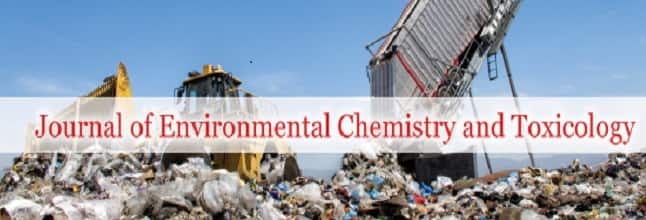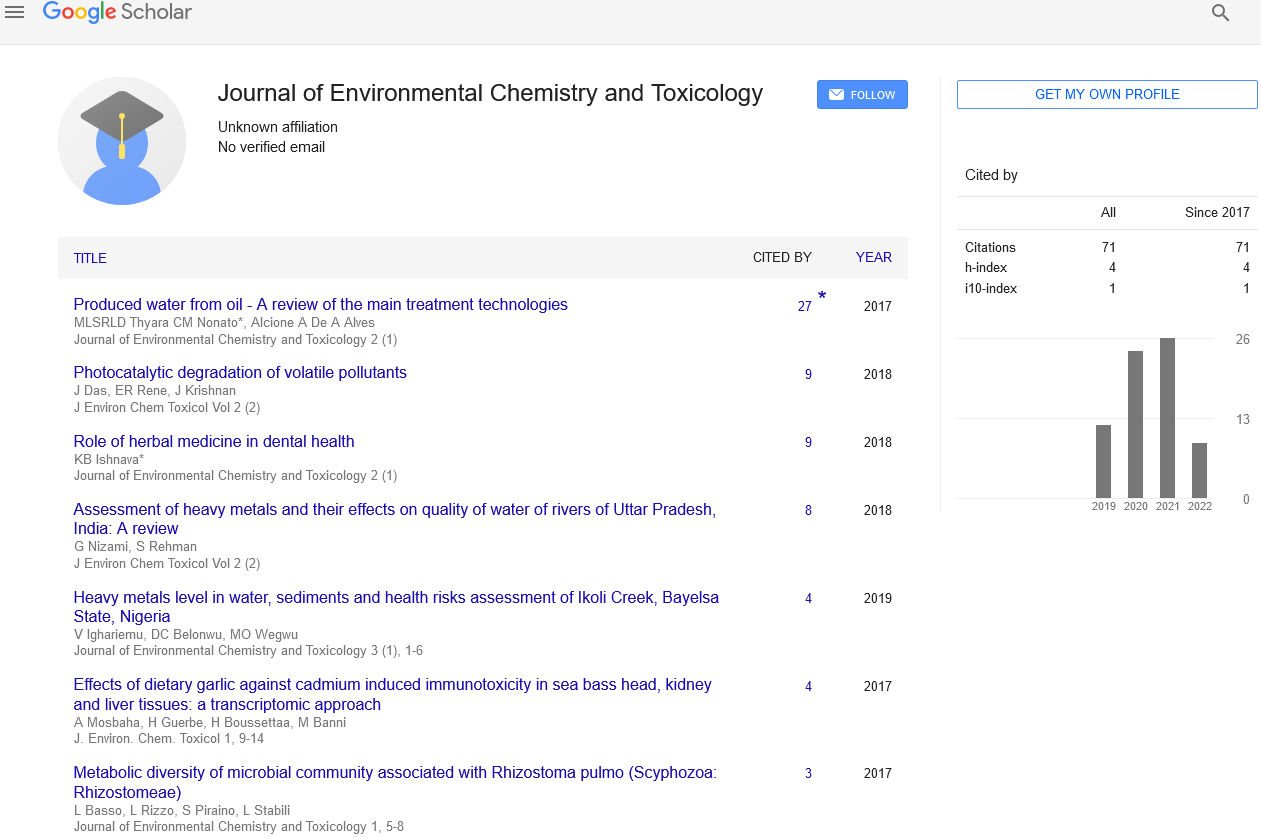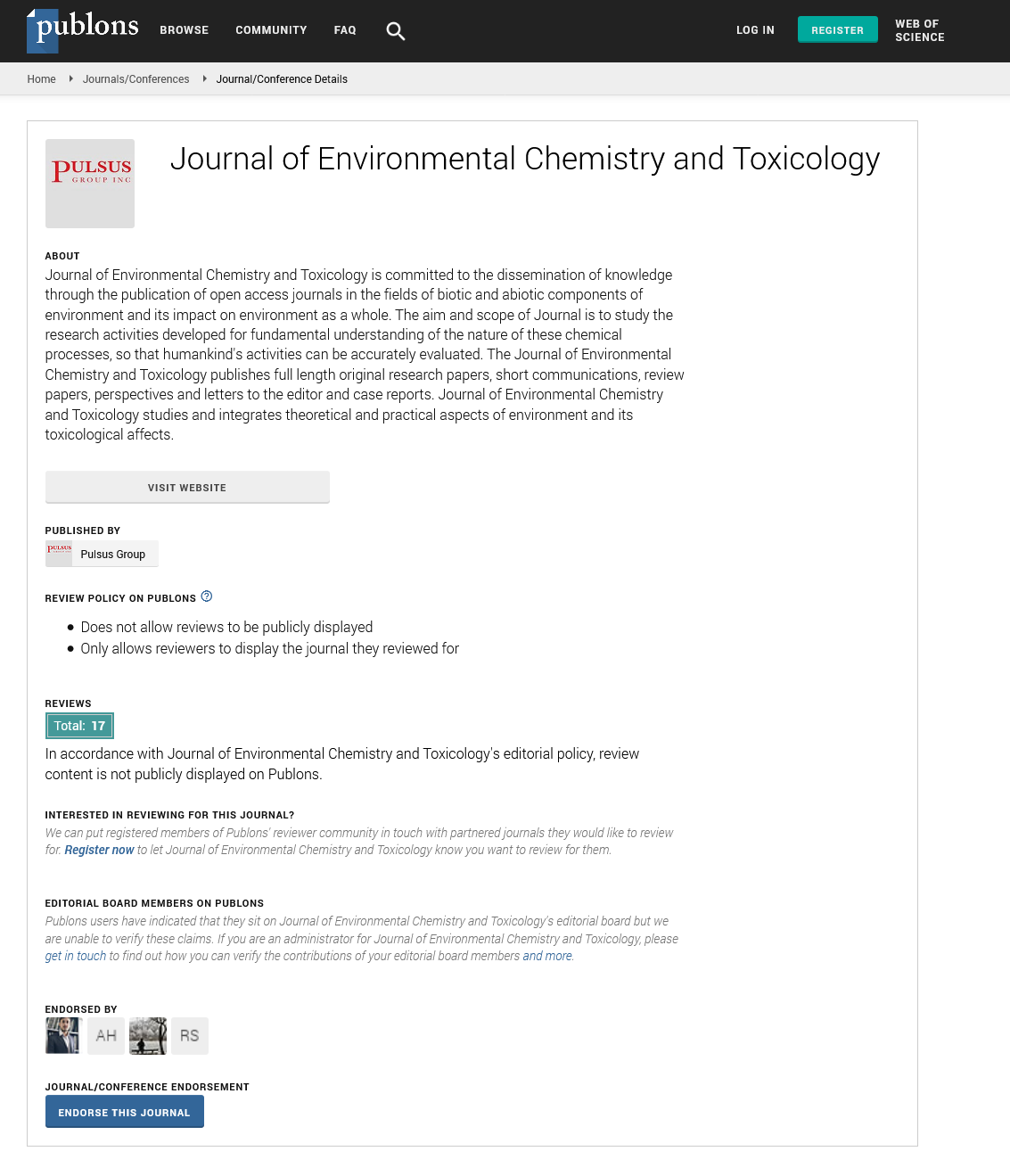
Sign up for email alert when new content gets added: Sign up
Abstract
Biochemical effects of effluent pollutants from coal mining activities on the freshwater snails, Helisoma duryi
Author(s): Joanna B Change*, Andrew H Siwela and Norah BasopoWe assessed the biochemical effects of effluent pollutants from coal mining activities using the freshwater snail, Helisoma duryi, as a bioindicator species. Water samples were collected from 3 different sites in a coal mining area in Hwange. Physical parameters were measured on site and these were pH, total dissolved solids (TDS), temperature and conductivity. The water was analyzed for zinc, lead, copper and cadmium. Fresh water snails, in groups of 60, were exposed to sampled water diluted with tap water in the ratios 95:05 for sites 1 (coal processing plant) and 2 (underground acid rock drainage point) and 10:90 for site 3 (power production plant). The exposure duration was 28 days with snails collected at 7 day intervals to determine time dependent effects of effluent from mining activities. After the exposure duration, post mitochondrial fractions were prepared and used to determine catalase, superoxide dismutase and acetylcholinesterase activities. Very low acidic figures were observed in the water samples with site 2 having a pH of 2.13. High levels of TDS (1.21 ppt) and conductivity of 2.42 mS were observed at Site 1. High levels of zinc (540.0 mg/L ± 4.86 mg/L), copper (53.2 mg/L ± 0.16 mg/L), lead (9.6 mg/L ± 0.03 mg/L) and cadmium (4.3 mg/L ± 0.07 mg/L) were observed in the water samples. Time depended inhibitions of acetylcholinesterase and catalase were observed in snails exposed to water collected from Site 3 whilst superoxide dismutase activity showed a decrease over time. These results suggest that pollutants from the mining activities affect the reactive oxidative status of aquatic biota as indicated by the alterations of the studied enzymes in the freshwater snail H. duryi. There is therefore, need for constant monitoring of water bodies in coal mining areas to safeguard the health of aquatic life from adverse effects of effluent from coal mining activities.
Full-Text | PDF





